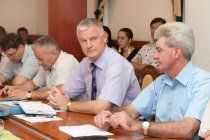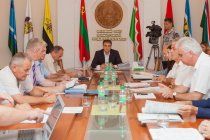 Русский
Русский English
English-







On the eve of the autumn session
The legislature is working in non-stop mode. The spring session of the 6th convocation of the Supreme Council will end tomorrow, 31 August. Deputies will summarize more than eight-legislative activitie during the final plenary session of the spring session.
The second autumn session of Parliament will begin next week - on the 7th of September. Its agenda was formed during today's meeting of the Presidium of the Supreme Council. Members of the Committee on development of business and industry recommended the deputies to overcome the presidential veto on the amendments adopted by Parliament to the Customs Code. Their essence is in the abolition of the pre-registration of foreign economic contracts as a mandatory element of customs clearance.
Deputies of the Committee on economy see no reason for the suspension of a number of articles taken literally in May this year of one of the anti-crisis laws. The President, who initiated the adoption of the law addressed the Supreme Council with such an initiative. However, signing a law passed by parliament, he appealed to the Constitutional Court with a request to verify the constitutionality of its provisions. It is primarily a question of compulsory sale of all proceeds from the sale of electricity to the state foreign exchange reserve deposit accounts of state enterprises in the Savings Bank and the provision of the Accounting Chamber the right to check the state-owned commercial banks.
A large package of laws, prepared by members of the profile parliamentary committee on public associations, sports, information and youth policy for the second reading, regulating the activities of the public media, will be discussed at the deputies during the first September plenary. This is about foundation of the national public media and national government departmental media, the appointment of its chief editors.




